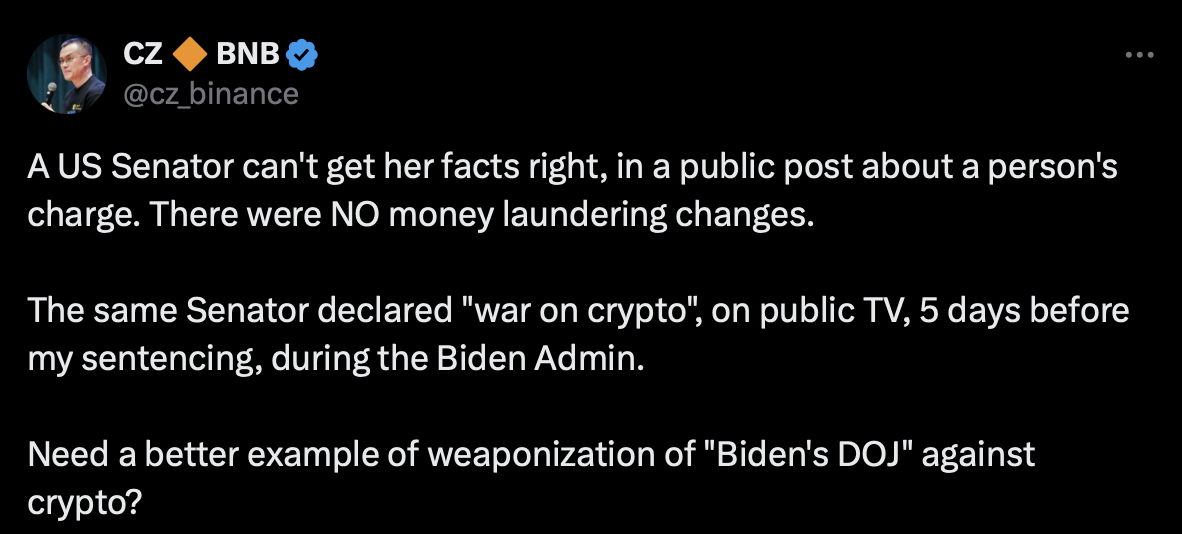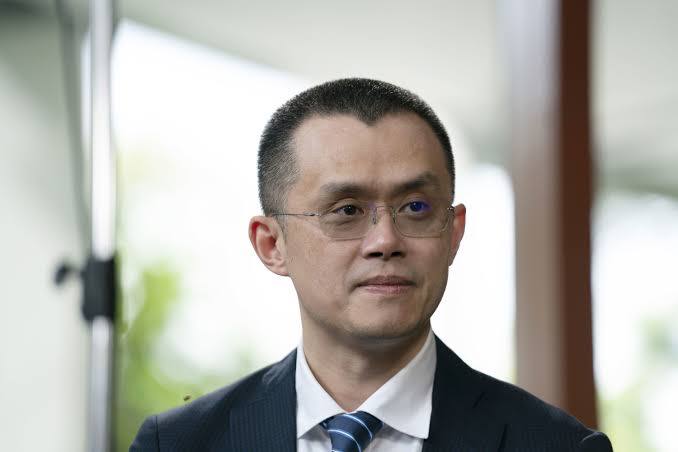Changpeng Zhao Trump Pardon Dispute with Warren
Binance co-founder Changpeng “CZ” Zhao has publicly challenged U.S. Senator Elizabeth Warren’s remarks following his recent pardon by former President Donald Trump. Senator Warren claimed on social media that Zhao “pleaded guilty to a criminal money-laundering charge.” In response, Zhao refuted the assertion, stating, “There were NO money laundering [charges],” and accused Warren of failing to verify her facts. The exchange has intensified scrutiny on the circumstances and nature of Zhao’s conviction and the subsequent pardon.
Background: Zhao’s Conviction and Pardon
The disputes began after Zhao, who previously served as the CEO of Binance, pleaded guilty in a U.S. federal court to a single felony count related to violating the Bank Secrecy Act. The plea was for failing to implement an effective Anti-Money Laundering (AML) program at Binance, not for directly laundering money. This admission stemmed from compliance lapses, and Zhao was sentenced to four months in prison in April 2024. On Wednesday, Zhao received an official presidential pardon, an action later confirmed by Binance in a statement to Cointelegraph and reported widely within the cryptocurrency sector.
Warren’s claim prompted Zhao to clarify via X: “There were NO money laundering [charges].” He emphasized that he accepted responsibility only for compliance failures at the exchange, not for any act of money laundering. Some critics on social media argued Zhao was “playing semantics,” but he maintained the distinction between failing to prevent money laundering and being convicted of laundering funds himself.

Political Fallout and Market Reaction
Senator Warren expanded her remarks, alleging that Zhao helped finance Trump’s stablecoin and actively lobbied for a pardon. This followed reporting on Zhao’s purported support for the Trump-backed USD1 stablecoin initiative and his expressed interest in a presidential pardon. Around the same time, Zhao considered legal action against Bloomberg for an article suggesting Binance played a central role in developing the USD1 currency, which critics argued presented a conflict of interest for Trump.
U.S. Representative Maxine Waters also commented, contending that Trump’s pardon of Zhao showed favoritism towards “crypto criminals” and went further by linking Binance’s compliance failures to high-profile illegal activities. She claimed, “Trump is doing massive favors for crypto criminals who have helped line his pockets.” Both Warren and Waters’ statements tie Zhao’s case to broader debates about cryptocurrency regulation and the influence of major industry actors in U.S. politics.
What’s Next for Zhao and Crypto Regulation
The controversy over Changpeng Zhao’s Trump pardon and the subsequent dispute with Senator Warren underscore ongoing tensions in Washington over cryptocurrency oversight. With Zhao’s legal case resolved through the pardon, focus now shifts to regulatory expectations around crypto exchanges’ AML procedures. Meanwhile, wider discussions about political influence, presidential pardons, and campaign financing are expected to continue, especially as reports suggest a substantial increase in wealth for Trump and his family during his second presidential term.
As the U.S. considers further legislative moves on digital assets, the debate prompted by the Changpeng Zhao Trump pardon is likely to shape both compliance standards and public discourse on the intersection of technology, finance, and politics. For the latest in crypto regulation and industry developments, visit our cryptocurrency news section.
Sources: Cointelegraph



















